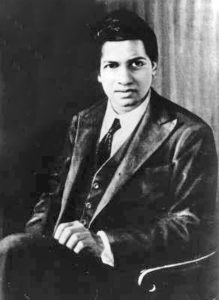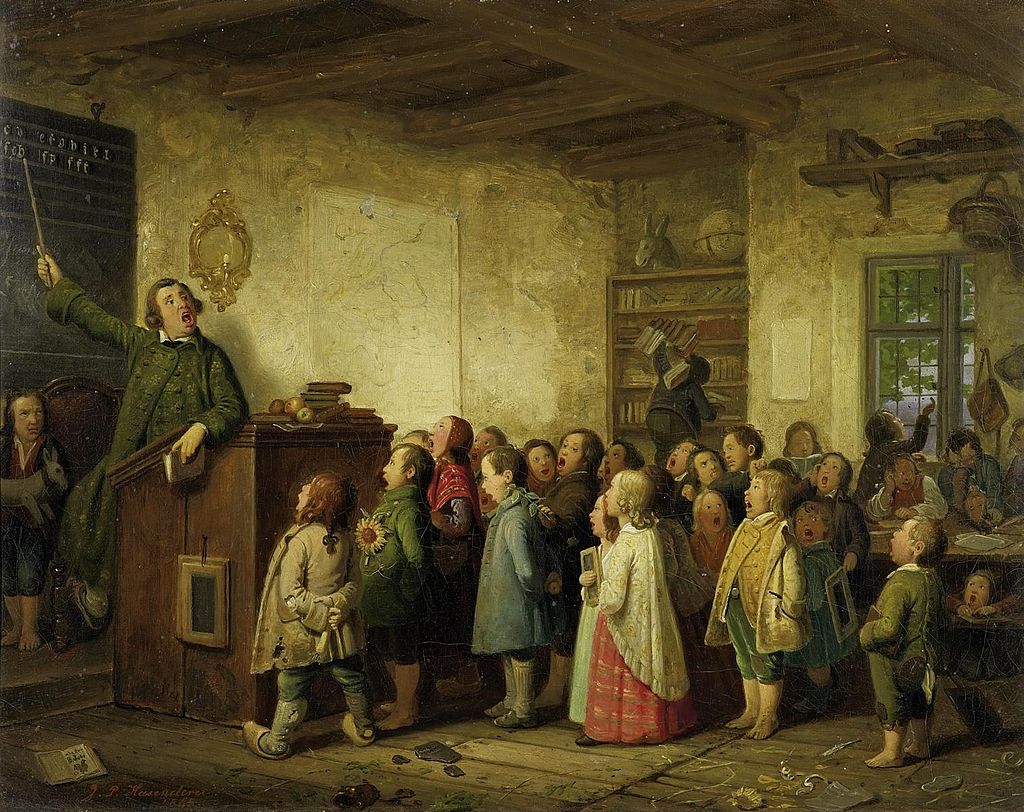
Srinivasa Ramanujan via Wikipedia Commons
My father, a south-Indian from a traditional Coimbatore home, was passionate about numbers and my childhood was spent listening to stories of very particular hero’s; No, not Wonder woman – He told me about Srinivasa Ramanujan who he said, finished a three hour math exam in thirty minutes and came up with multiple solutions to a particular problem, some of which stumped his teachers. His mother was a housewife and father was a clerk in a sari shop. Another hero in my father’s world was Shakuntala Devi. He had once seen her calculate up to the 20th square root of a 200 digit number within minutes. Her father worked in a circus as a trapeze artist.
This brings us to the moot question – “Are hero’s born or bred and could there actually exist this dichotomy of mathkind and the others?”

Google doodle of Shakuntala Devi via Vanderelbe.de under the CC license
Much before a child starts formally learning mathematics, she has some conceptual understanding of numeracy. This preschool “number sense” includes knowing the difference between more and less, big and small. Children are also introduced to the vocabulary of mathematics that derives from Latin and Classical Greek, eventually including, interpretation of signs, symbols, syntax and semantics. Sir Micheal Rutter who has written extensively on the field of behavioral genetics claims that genes operate through the environment and hence function in probabilistic not deterministic ways.
So, even if in the remote future they find a gene for mathematics, one cannot discount the role of the pedagogue and how math is taught. This underlines the quality of classrooms math instruction and teacher expectations of student performance, especially of those students that I previously labeled “the others.” It is a well documented fact that several math educators, either when not rigorous in their own understanding, or when unable to communicate technique, depend solely on rote memorization to teach children in classrooms. Furthermore, textbooks and teachers do not demonstrate contrasting explanations to a particular question, so that when rules have to be expanded or generalized across all types of numbers (whole to rational, for instance), children get confused or resist. As a result, math anxiety develops amongst those who are already averse to the subject. When teachers expect some students to perform worse than others, studies show that indeed, they do. It becomes a self-fulfilling prophecy.

Johann Peter Hasenclever, via Wikimedia Commons
Canadian, Dr. John Mighton, is an educator whose focus is on math instruction and the need to replace mathematical anxiety with a mathematical appetite. His not-for-profit organization “JUMP Math” addresses the aforementioned issues and believes in the premise that anyone can learn math and anyone can teach it. Montessori education too, very early on, emphases the need to teach children, the relation of numerical symbols to beautiful concrete real-life things, in classrooms but especially out of the classroom and for instance, in nature.
Much like Chef. Gusteau from Pixars animation Ratatouille who believed that “tout le monde peut cuisiner” or “Anyone can cook”, mathematics is a universal language that is important for survival. It is the responsibility of educators to make learning it pleasurable and accessible to all.






